 Petzlover
Petzlover Balinese is originated from Thailand but Japanese Bobtail is originated from Japan. Both Balinese and Japanese Bobtail are having almost same weight. Balinese may live 5 years more than Japanese Bobtail. Both Balinese and Japanese Bobtail has same litter size. Both Balinese and Japanese Bobtail requires Low Maintenance.
Balinese is originated from Thailand but Japanese Bobtail is originated from Japan. Both Balinese and Japanese Bobtail are having almost same weight. Balinese may live 5 years more than Japanese Bobtail. Both Balinese and Japanese Bobtail has same litter size. Both Balinese and Japanese Bobtail requires Low Maintenance.
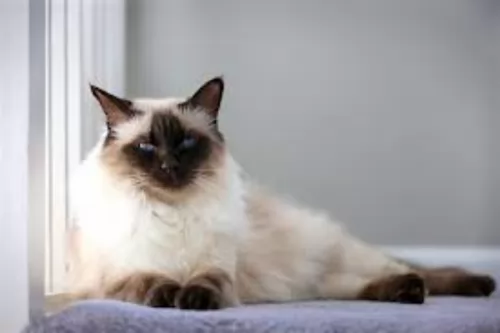 The slender Balinese cat is a cat similar in looks to the Siamese cat but fluffier. In fact, in the 1950s, Siamese breeders in the United States discovered that the kittens were fluffier than what a Siamese cat should be.
The slender Balinese cat is a cat similar in looks to the Siamese cat but fluffier. In fact, in the 1950s, Siamese breeders in the United States discovered that the kittens were fluffier than what a Siamese cat should be.
The fur was too long to conform to Siamese cat standards. Two Siamese breeders, Helen Smith and Marion Dorsey loved the look of the longer-haired Siamese with the idea being to name the breed the Longhair Siamese. Siamese breeders didn’t want this and the name became Balinese.
The Balinese cat has been recognized by many cat registries and associations.
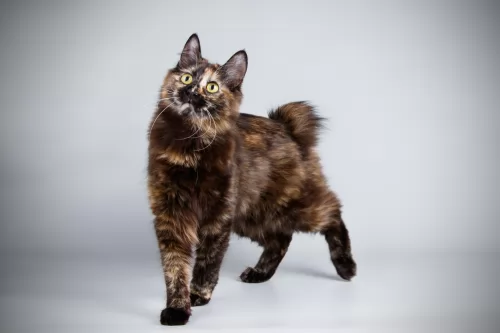 It is believed that these naurally-occuring short-tailed domestic cats in Japan arrived from the Asian continent about 1 000 years ago.
It is believed that these naurally-occuring short-tailed domestic cats in Japan arrived from the Asian continent about 1 000 years ago.
It was way back in 1602 that the Japanese authorities made it that all cats be released to tackle the rodent problem that were threatening the nation's silkworm population.
Bobtail cats were the street cats of Japan. In 1968, the cat was imported to the Western Hemisphere from Japan and in 1976 the shorthaired Japanese Bobtail was accepted for Championship status in the Cat Fanciers’ Association.
There are a number of cat’s breeders in North America and Europe, but it is still a rare cat. Today, the Japanese Bobtail is a recognized breed by all major registering bodies.
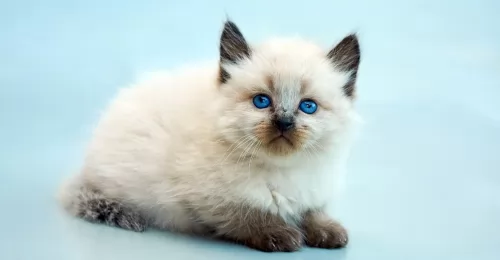 The medium-sized Balinese has a long, slender, finely built body with the head being long and triangular.
The medium-sized Balinese has a long, slender, finely built body with the head being long and triangular.
The eyes of the cat are slanted and a deep blue.
The coat is medium in length and is soft and silky without an undercoat. The coat length is pretty much all that distinguishes this cat from the siamese cat. The coat is pointed which means you’ll find concentrations of color – cream, red and tortoiseshell on the face, ears, legs and the plumed tail.
Your Balinese is a talkative cat and he is active and playful too. Because it is such an intelligent cat, it can learn tricks too.
They are affectionate cats and bond closely with their human family. They crave lots of attention and don’t like being left alone for long periods of time. They’re chatty cats too and love to leap up onto high perches and look down on their world.
If you have a Balinese as a pet, you will certainly have to invest in climbing equipment.
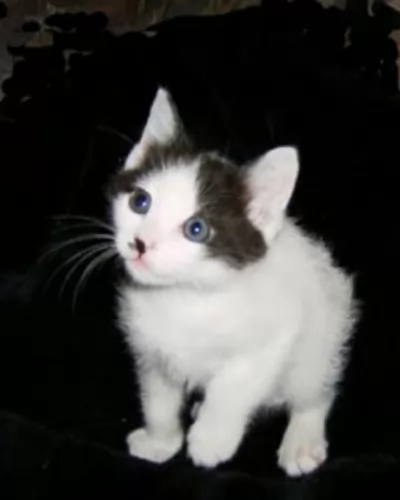 The medium-sized, long, lean and muscled Japanese Bobtail, with long slender legs, is known for its unusual bobtail. People liken the tail to that of a rabbit. The tail must always be visible though.
The medium-sized, long, lean and muscled Japanese Bobtail, with long slender legs, is known for its unusual bobtail. People liken the tail to that of a rabbit. The tail must always be visible though.
The head has a triangular shape and the neck is neither too long or too short. The ears are upright and set wide apart. The oval-shaped eyes are large.
The hind legs are longer than the front legs. The cat weighs between 3 and 6kg and comes in almost any color and pattern but it is thought that the triple-colored ones are the most favored in Japan.
The coat is of medium length and is soft and silky. The head of the cat is triangular with the ears being large and wide apart. The eyes are large and oval-shaped.
The Japanese Bobtail makes a good feline pet for families. They get on well with children and are affectionate and loving with all their human family members.
They’re talkative cats too, enjoying communication with people and using soft noises. It’s an intelligent cat and one that happens to love water too, and is a playful cat, making a great loyal companion.
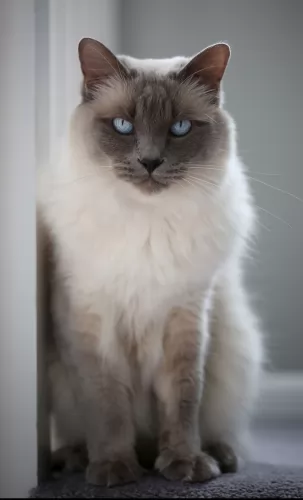 Your Balinese cat is a friendly, affectionate cat that will bond closely with his human family.
Your Balinese cat is a friendly, affectionate cat that will bond closely with his human family.
They’re the kind of cats that enjoy having their family members around them and they don’t like being left alone for long periods.
He is a playful cat so make sure that he has some nice toys that will keep him amused. They’re known for their intelligence and their inquisitive and playful natures, not to mention that these cats are easy on the eye as well.
Vocal and demanding, if you want someone who demands your friendship, then take a look at these beautiful Balinese cats.
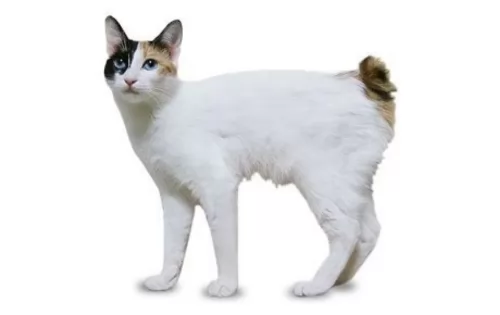 The Japanese Bobtail is such a sweet, playful, loving cat. The cat loves to be with his human family and is highly intelligent.
The Japanese Bobtail is such a sweet, playful, loving cat. The cat loves to be with his human family and is highly intelligent.
They are quite capable of learning tricks and playing games much like a dog. They are social cats and while they aren’t lap cats, they seek out the company of their human family, making use of a soft voice to communicate.
They’re such sweet cats and are adored by those who have brought them into their home as a pet and friend.
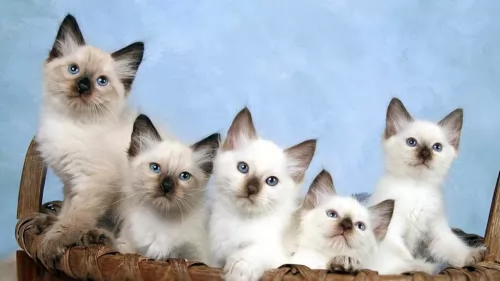 Balinese cats are fairly healthy and any health problems these cats may have are much the same as those for the Siamese cat.
Balinese cats are fairly healthy and any health problems these cats may have are much the same as those for the Siamese cat.
You want to look at diseases such as respiratory illnesses, liver failure, dilated cardiomyopathy, and eye problems.
In fact, Progressive Retinal Atrophy is one health condition that you see quite a bit with the Balinese cat.
It can be an inherited eye disease or one that is acquired. PRA is a degenerative disorder of the retina and you will need to get your cat to the veterinarian. Unfortunately, there isn’t a treatment for PRA and therefore breeders need to check their breeding stock before allowing cats to be bred.
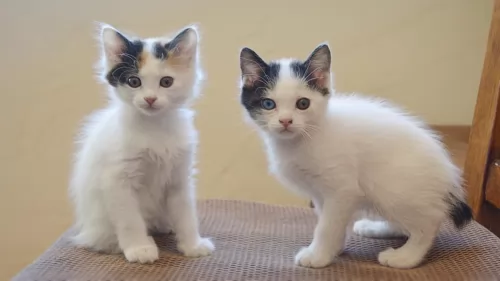 Just like any other cats, the Japanese Bobtail suffers from any one of the different health problems there are. The Japanese Bobtail is a healthy cat generally and he can easily reach 15 years of age with good care.
Just like any other cats, the Japanese Bobtail suffers from any one of the different health problems there are. The Japanese Bobtail is a healthy cat generally and he can easily reach 15 years of age with good care.
Look out for obesity. Obesity comes with a host of health issues, putting a strain on the cat’s joints as well.
You want to manage your furry friend’s food portions to ensure he remains lean and muscular. Feed your adult cat twice daily. Discover what your cat likes in terms of dry cat food, semi-wet or wet cat food.
Your cat is a carnivore and requires quality meaty foods. The best, high-quality cat foods always have meat at the top of the ingredients list as they need meat to get all the right nutrients in.
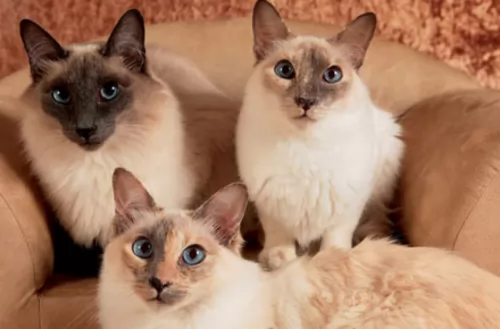 Your health depends on what you eat, and the same applies to cats too. Apart from good veterinary care for your cat, good food is of critical importance. A proper diet can eliminate veterinary expenses substantially.
Your health depends on what you eat, and the same applies to cats too. Apart from good veterinary care for your cat, good food is of critical importance. A proper diet can eliminate veterinary expenses substantially.
In feeding your cat, learn to read cat food labels and make sure your furry friend is getting the right amount of proteins, vitamins, and minerals.
There are many choices of cat foods – homemade and commercially manufactured cat foods which can be canned or you also get the dry cat kibble type of food.
If your furry friend doesn’t like a particular food, don’t punish him by taking it away and leaving him without food. Your mom tried you with different foods and you should do the same with your feline friend.
Provide your Balinese with ‘cat equipment’ - feeding and drinking bowls, grooming equipment and a nice, soft bed for him to lie in and in a quiet place.
Keep your pet’s vaccines up to date and see he gets to the vet when he is ill.
The Balinese has a coat of medium length and because the cat only really sheds seasonally, it is looked upon as a low-maintenance coat. A brush once a week will get rid of dust as well as loose, dead hair and keep the coat in good condition.
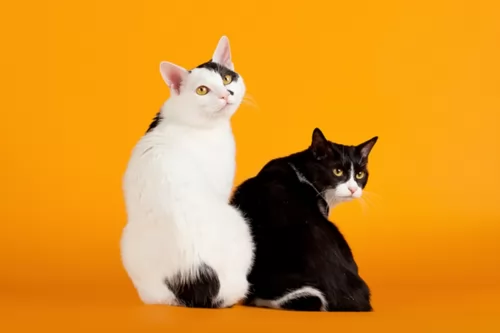 The cat’s medium coat sheds moderately, and a brush once a week to remove the loose hairs will be sufficient. You’ll want to brush him more often during his shedding seasons.
The cat’s medium coat sheds moderately, and a brush once a week to remove the loose hairs will be sufficient. You’ll want to brush him more often during his shedding seasons.
Help with keeping your Japanese Bobtail clean by scooping his droppings out of the litterbox at least every day and also changing the litter at least every week.
When you bring your Japanese Bobtail kitten home, you’ll have to take him to the vet. This is because from 8 weeks of age your kitten will need to get his first vaccines. Booster vaccines for your cat will also be required later on.
Provide your cat with a scratching post to prevent him from scratching your furniture.
Never leave your Japanese Bobtail without a constant supply of fresh, cool water.
Wash your cat’s water- and food bowls every second day to prevent bacteria from building up.